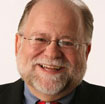Commentary on Psalm 111
Book V of the Hebrew Psalter (Psalms 107-150) is an extended collection of psalms brought together in the ongoing traumatic aftermath of the Exile, and yet, the opening psalm is a call to thanksgiving and Psalms 111-112 continue that call. Psalms 111, 112, and 113 begin with the central call of the psalms of praise—Hallelujah! (a transliteration of “Praise YHWH”). Psalms 111-118 constitute a “Hallel,” a collection of psalms associated with the Passover and emphasizing the word “Hallelujah.”
The praise of God continues even in the difficult aftermath of exile for the community of God’s people. Psalms 111-112 are also alphabetic acrostics (each line beginning with the next letter of the Hebrew alphabet), a method of composition characteristic of Wisdom literature. For readers and hearers, an alphabetic acrostic can also serve as a mnemonic device and suggest the literary view that everything has been said on the subject, from A to Z. The concluding verse of Psalm 111 is also a Wisdom comment. Psalm 111 is a hymn of praise used in corporate worship and which also has some teaching dimensions about the mighty acts of YHWH in history; however, there is much more to the text.
The heading of the psalm is “Hallelujah,” an imperative call of the community to praise the Lord. The praise is offered “with my whole heart.” The heart is the seat of the will and so the speaker brings the full self to the praise of God in the community’s worship. The reason for the praise is the mighty acts of God (verses 2, 4, 6, 7). These marvelous acts are renowned and brilliant in the memory of the community. The memory brings delight and also reflection. These mighty acts of YHWH initiated a right relationship between the covenant community of ancient Israel and YHWH.
In the middle of this strong confession in praise of God’s “wonderful deeds” (verse 4) comes the confession of faith that God is “gracious and merciful.” The language recalls the famous confession of Exodus 34:6-7 that YHWH is gracious and merciful. The context in Exodus is the story of the golden calf in which the Lord graciously renews covenant with the community in the face of Israel’s covenant breaking. “Merciful” comes from a term indicating the womb-love of the mother who has given birth to the children of Israel. The gracious and merciful one has liberated the people from slavery in Egypt and brought them into covenant relationship with YHWH and with each other. This psalm of praise delights in God and God’s mighty acts on behalf of the community of faith.
The mighty acts of God remembered in this liturgy of faith brought ancient Israel into covenant relationship with YHWH, a relationship issuing in wholeness of life and community. The last verse of Psalm 111 interestingly ties the covenant relationship and instruction (torah) to wisdom, defined in Proverbs 1 as “the fear of the Lord.” This connection is not common in the Older Testament, but this concluding verse suggests that the gifts of wisdom and understanding come in covenant keeping. The psalm’s concluding line recalls for the community the reality that the whole poem is tied to the enduring praise of God.
Two comments are most striking in exploring this brief but intense psalm of praise. The first is the use of special Old Testament vocabulary. The list is long: righteousness, gracious, merciful, covenant, precepts, faithfulness, uprightness, and redemption among others. The psalm is a classic Old Testament recital of the mighty acts of God on behalf of ancient Israel in order to bring them into covenant relationship with YHWH. That relationship brings wholeness and hope for this people and thus redemption.
This act of communal memory with the “whole heart” has continued through the centuries and continues even now in the troubling aftermath of exile. Singing the praise of God declares for the congregation and for our world the mighty acts and gifts of God that can bring hope and wholeness even in the midst of debilitating trauma. And the psalm makes clear with its conclusion that the worship of the covenant community continues to narrate this story in memorable ways and in ways that lead also to reflection and wisdom. “The fear of the Lord” is a defining phrase for Old Testament wisdom. The word “fear” in this context has to do not so much with being afraid of a formidable power but with respect or reverence for the Lord. Whom one reveres, one obeys. Wisdom and understanding find their origin in reverence for the one who creates and gives this kind of understanding.
The second comment is that Psalm 111 is a robust model of the wedding of powerful intellect (wisdom) and strong emotion characteristic of the book of Psalms. The language of the psalm is uplifting and vibrant; it delights in the mighty acts of God and sings “with my whole heart.” At the same time, the psalm urges study and reflection on the history of God with the faith community and concludes with a nod to the intellectual tradition of ancient Israel, the tradition of wisdom. We have already seen that the connection of covenant and wisdom is not common in the Older Testament. The psalm weds emotion and intellect, as it also includes both individuals and “the company of the upright.” The psalm suggests that the best context for forming faith and growing in faith is that of a worshiping community. In a remarkably brief ten verses, Psalm 111 articulates much of ancient Israel’s theology in singing the praise of God.
In the contemporary church, some sing in praise with great gusto and emotion, and some sing with the proper tempo and enunciation. Seldom do congregations unite powerful intellect and strong emotional expression as do the Psalms. Intellect without emotion can become cruel; emotion without intellect can inflict harm. Psalm 111 is a beautiful manifestation of this “both/and” way forward.
The Psalms articulate faith in poetic and musical forms that communicate with power and with meaning and so provide contemporary persons of faith ways to sing their faith and ways to enact their faith. Such a grammar of faith as Psalm 111 reminds readers of the basis of that articulation and the power of that articulation for continuing to live fully.


October 9, 2022